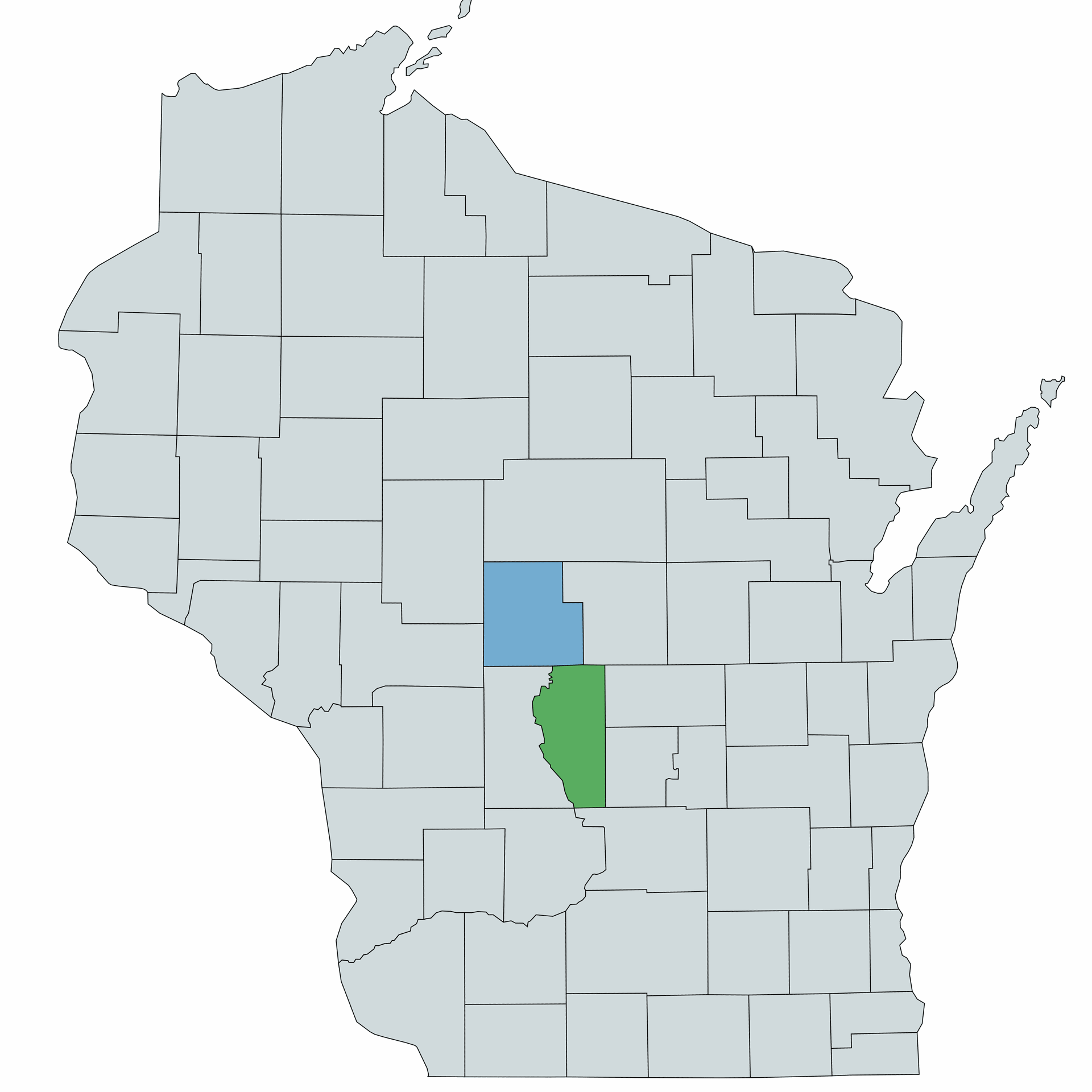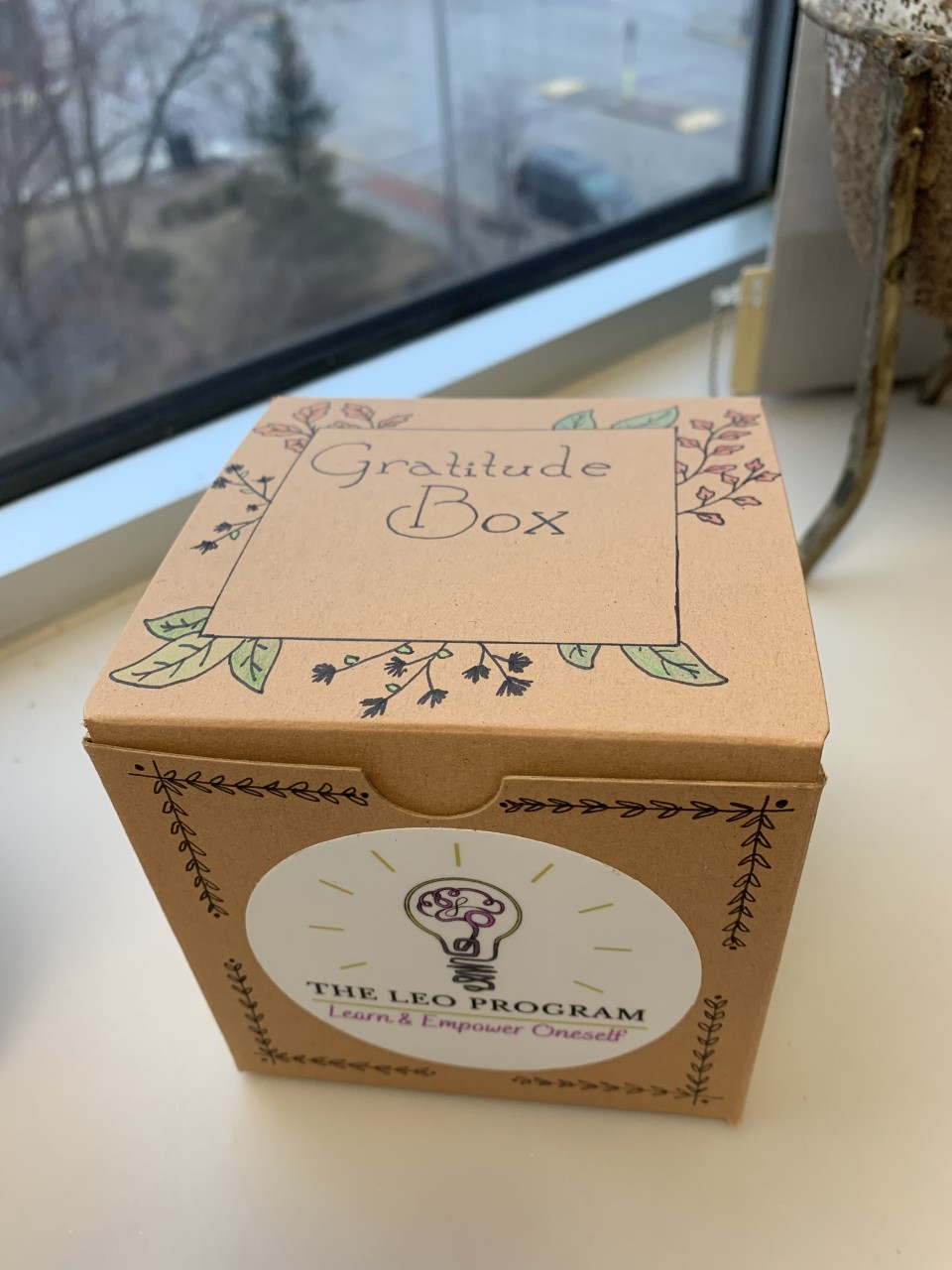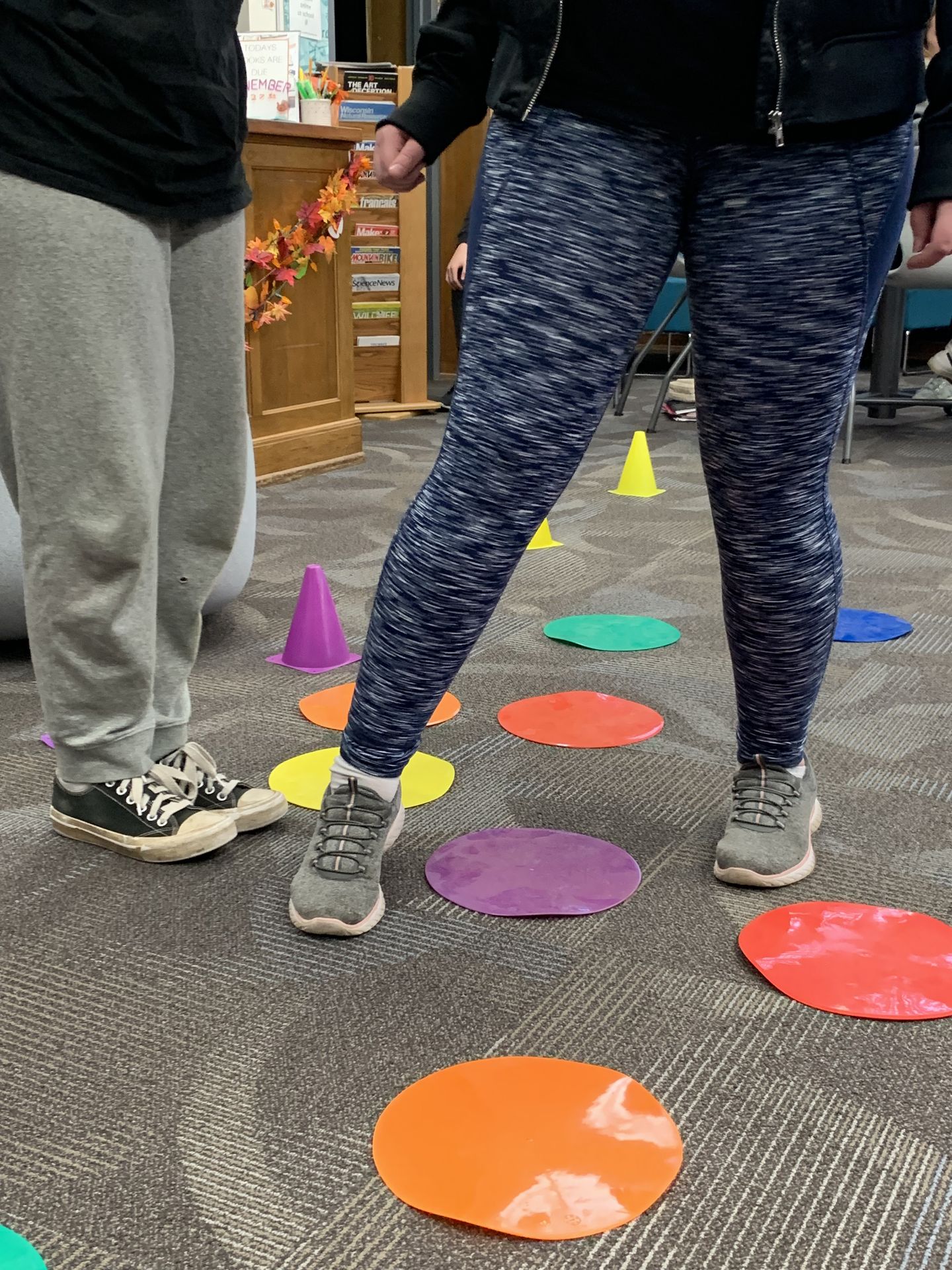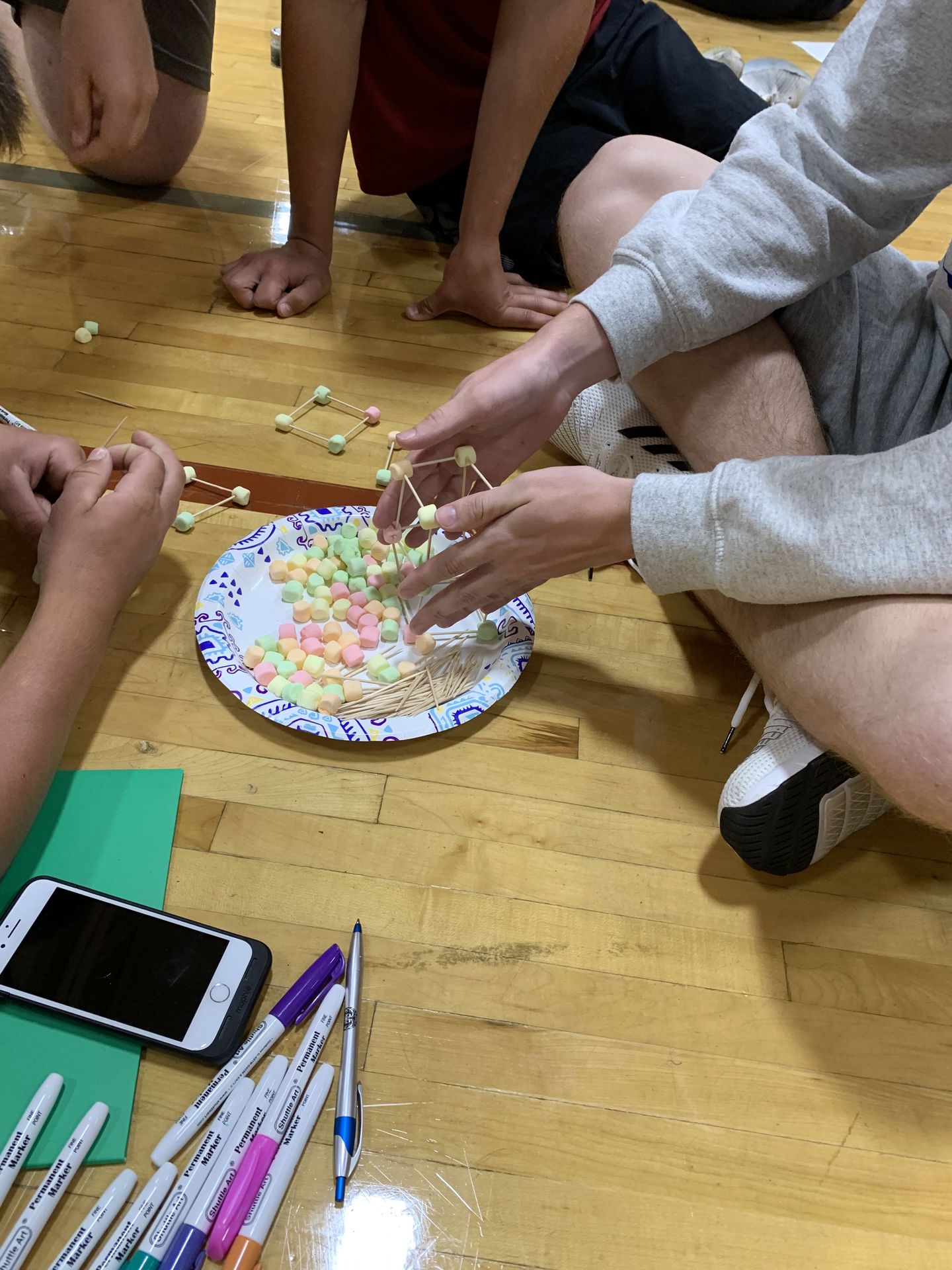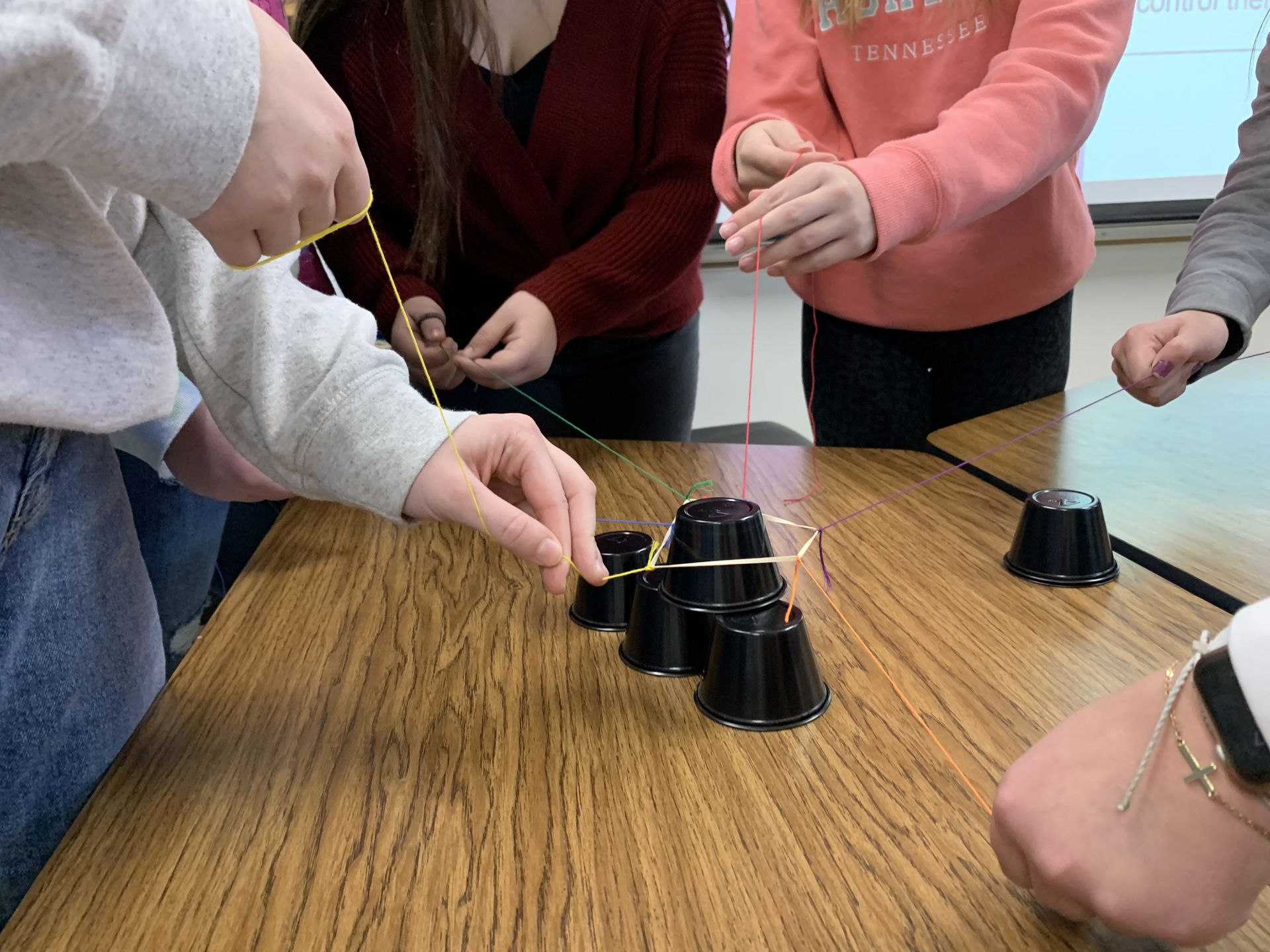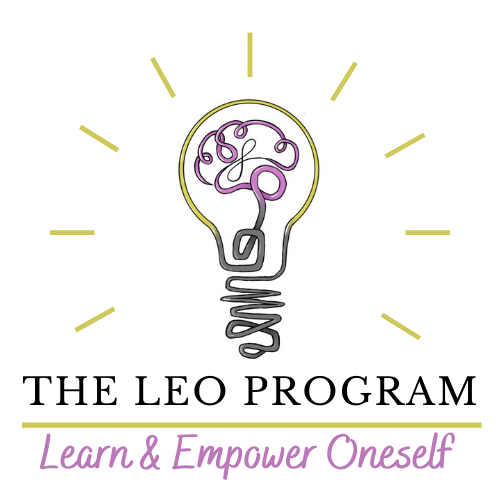
In Partnership with
Wood County Human Services Department
& Adams County Health & Human Services Department
Services began January 2019
Eligibility
- Reside in or attend school in Adams or Wood County
- Age 12 - 20
- Not have a diagnosed substance use disorder
Referrals
- Services are provided in partnership with area schools.
- Individual mentorship referrals made by either a school or a human service department.
Contact:
132 E Grand Ave, Wisconsin Rapids, WI
108 E North St, Friendship WI
In 2019, Wood County Human Services Department was awarded the Brighter Futures Initiative (BFI) Substance Prevention grant to implement the Learn & Empower Oneself (LEO) program. CW Solutions is contracted to operate the program. Beginning in 2021, we added a second BFI program under a contract with Adams County Health & Human Services Department. The curriculum is derived from and inspired by concepts and tools by Dr. Nijhawn’s Life Ecology Organization, which were used to develop age-appropriate and youth-focused curriculum.
Research has shown that there is a reduced risk of substance use in youth who have well developed resiliency skills. Our program is based upon the Life Ecology Organization's work. Our 8-session program, Learn and Empower Oneself (LEO) empowers youth with practical tools to understand their brains and quickly improve resilience, adaptability, and fearlessness in a rapidly changing, stressful world. Resiliency, or the ability to ‘bounce-forward’ to overcome and grow through adversity, stress or trauma, can lead to adaptive outcomes.
This evidence-informed
curriculum has been approved as a SAPTBG Evidence-Based Prevention Program by
the Wisconsin Department of Health Services.
You can learn more about BFI programming at the Department of Children and Family's website.
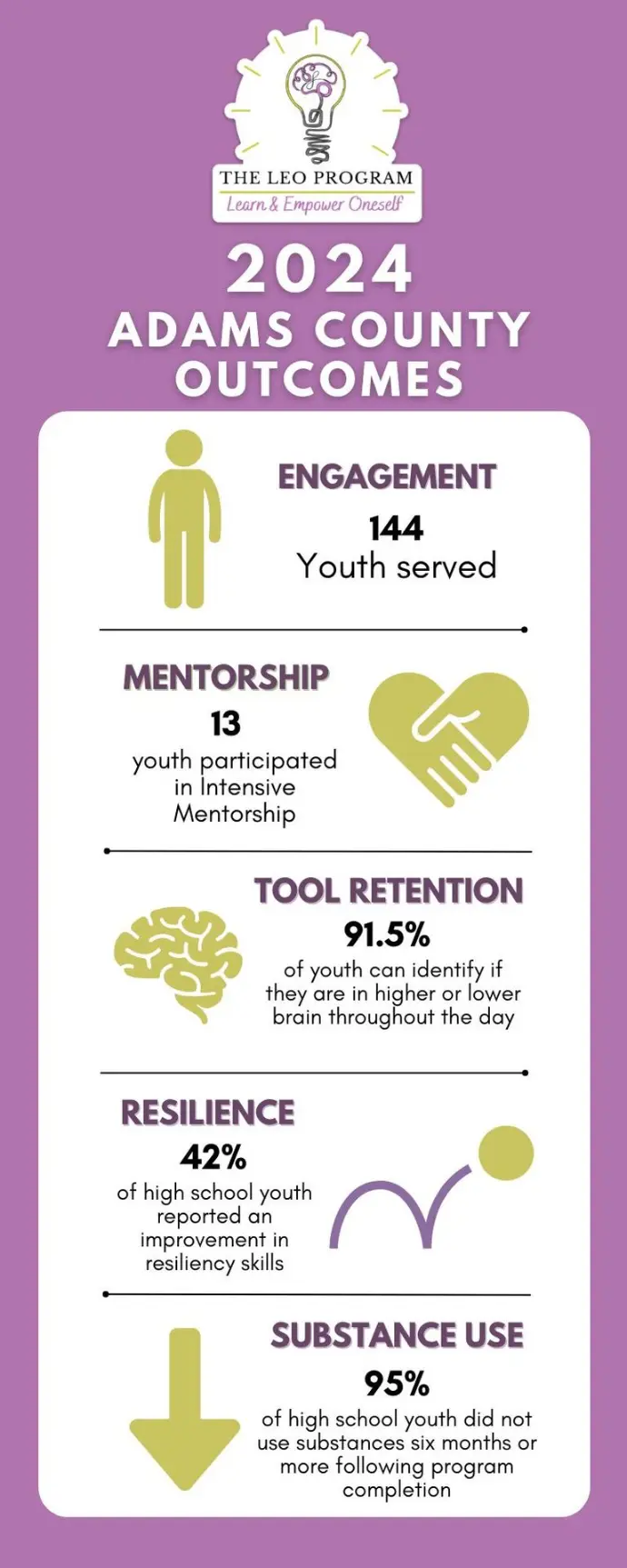

Shirley Bosarge, LEO Coordinator
Wood County Middle School Program
bosarge@changewithin.net | 715-315-1409
As a society, we often focus on the negative impacts of adversity, as they can have an incredible effect on health outcomes; less focus is placed on strengths-based approaches to developing and strengthening resiliency to cultivate long-term, positive outcomes for youth. The LEO Program curriculum and mentorship strives to empower youth through hands-on experience, tangible tools and discussion to understand their brains and improve resilience, adaptability, and fearlessness in a rapidly changing world.
Each component of this brain-science programming focuses on increasing resiliency and developing strategies to create a natural flow of dopamine that does not depend on external stimuli. In turn, it is expected that youth are less likely to experiment or regularly use addictive substances because there is no neurological or chemical void to be filled by external stimuli. Using key tools and concepts from the Life Ecology Organization, youth can reduce stress and anxiety, and improve memory, creativity, self-awareness, and quality of life, each of which are key factors in preventing substance use.
The LEO Program is funded through the Brighter Futures Initiative (BFI) via the Department of Children and Families (DCF), which requires all programs to be evidenced-based. As such, we are required to collect specific data on program participants. There are two categories of data the program collects. All data is kept confidential.
Personal Data
The program requests all program participants to provide personal data for purposes of determining eligibility and maintaining the minimum information necessary to provide services. Some information is collected for the parent/guardian of minors. This includes the following:
|
Data Element |
Participant |
Parent/Guardian |
|
Name |
X |
X |
|
Birth Date |
X |
|
|
Address (Mailing) |
X |
X |
|
Primary phone |
X |
X |
|
Cell or additional phone |
X |
X |
| Status of substance use diagnosis | X |
Personal information is stored in a secured case file that is accessible by the LEO Program Coordinator, LEO Manager and LEO Support Staff and is only accessed when necessary for the administration of the program. On occasion, DCF may query a case file for purposes of quality assurance reviews.
Personal data is used to determine eligibility for the program and to make contact during program participation. Contact information is also utilized during the Annual Survey in order to connect with program participants to complete the survey.
Survey Data
As an evidenced-based program, we are required to conduct program surveys to assess the impact of the program on participants. Three survey instruments are used. A Pre-Survey is completed at the start of the classroom program, a Post-Survey is completed at the end of the program and an Annual Survey is completed once a year.
All surveys are submitted to the Survey Unit to remove identifying information (name, etc.) and randomly assigned a 12-digit confidential survey number. A master key identifies names to the assigned confidential survey number. This master key is kept in a secured location that only three people have access (LEO Manager, LEO Survey Coordinator, LEO Support Assistant). The LEO Coordinators and other direct-service staff have no access to this information and are not able to view survey results with participant identifying information. This process ensures confidentiality of all program participants and allows the program to track individual results without identifying the individual.
Survey results are compiled and tracked in reports through this confidential process. Results are submitted to the Department of Children and Families, Bureau of Youth Services as part of contract requirements and with the Life Ecology Organization. No confidential data is shared in the reports.
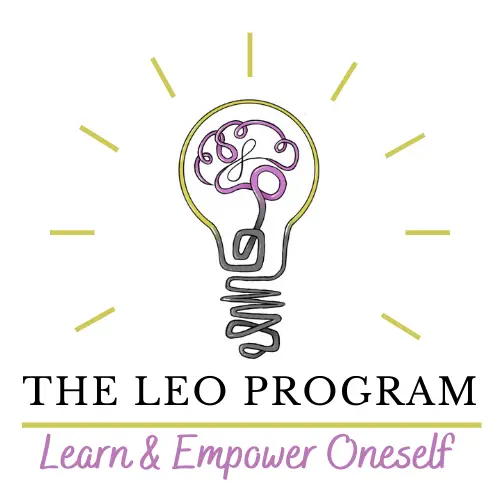
Ambassadors
We use a family-systems, strength-based mentorship model and our staff empower youth to use their strengths to make informed decisions on how to best pursue their personal goals. Youth are empowered to activate their higher brain through activities, reflection, and mentorship to resiliently navigate life’s challenges. We leverage youth’s strengths and personally identified areas of growth to provide opportunity through mentorship and ambassadorship, including co-facilitating modules and contributing to our marketing/social media. For example, one gifted LEO participant created the LEO Program logo (pictured).
